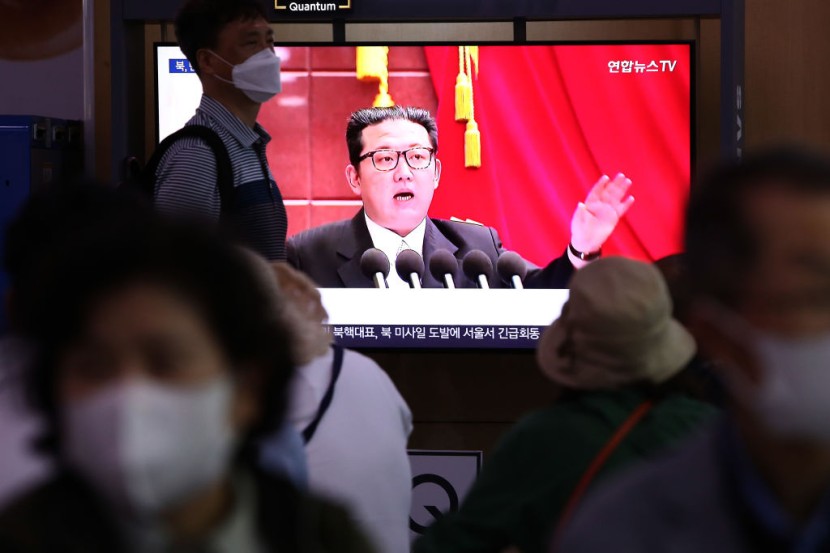
North Korea has recorded an epidemic of an unnamed gastrointestinal disease in the country's southwest region amid its worsening COVID-19 outbreak situation.
The Korean Central News Agency (KCNA) did not specify the number of people suffering from an "acute enteric epidemic."
KCNA reported that the North Korean leader "stressed the need to contain the epidemic at the earliest date possible by taking a well-knit measure to quarantine the suspected cases to thoroughly curb its spread, confirming cases through epidemiological examination and scientific tests."
According to the official Korean Central News Agency, Kim donated his family's reserved medicines for people diagnosed with "an acute enteric outbreak" in southeastern Haeju city on Wednesday. A front-page photo of Kim and his wife Ri Sol Ju examining saline solutions and other medicines they were going to donate was published separately in the North's major Rodong Sinmun newspaper, per a Time report.
Authorities Monitoring New Outbreak and Its Possible Impact on Food Supply
Several observers say North Korea's "enteric epidemic" refers to an infectious disease such as typhoid, dysentery, or cholera, which are intestinal ailments spread by germs through contaminated food and water or contact with infected people's excrement.
Such infections are common in North Korea, which lacks adequate water purification facilities and has had a mostly shattered public healthcare infrastructure since the mid-1990s.
Seoul is monitoring the outbreak, which is suspected to be cholera or typhoid, per a source at South Korea's unification ministry.
South Hwanghae province is North Korea's largest agricultural region, and the situation has prompted concerns about the impact of the new outbreak on food supplies in a country where more people are starving, per Al Jazeera.
According to the Food and Agriculture Organization and the World Food Programme, 10.9 million North Koreans (42.4 % of the population) were food insecure and in desperate need of assistance in 2021.
While the risk of infection spreading through crops is minimal, Eom Joong-sik, an infectious disease expert at Gachon University Gil Medical Center, believes sanitizing water supply sources is critical because the disease is likely to be waterborne.
COVID-19 Cases Still High
The current epidemic coincides with the North's ongoing war against COVID-19.
Pyongyang announced a state of emergency over the virus after daily confirmed cases in the country's predominantly unvaccinated populace reached around 393,000. According to the Yonhap news agency in South Korea, the number of "fever" patients was just over 26,000 on Thursday.
Pyongyang has been releasing the number of fever patients daily without identifying them as COVID patients, owing to a shortage of testing tools. Experts believe that the data given by government-controlled media are underreported, Reuters reported.
On Thursday, North Korea reported 26,010 more persons suffering from fever symptoms, bringing the total number of fever patients in the country since late April to about 4.56 million. The COVID-19 outbreak has claimed the lives of 73 people.
The North has claimed that the COVID outbreak is diminishing, but the World Health Organization has raised doubt about Pyongyang's statements, claiming that the situation is worsening.
Related Article : Chinese Authorities Trace 'Ferocious' COVID-19 Outbreak to Raucous Bar, Prompt Immediate Mass Testing
© 2025 HNGN, All rights reserved. Do not reproduce without permission.








